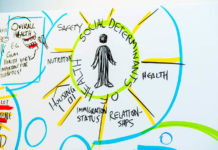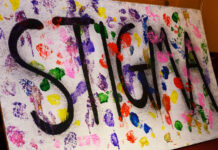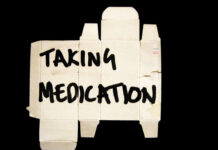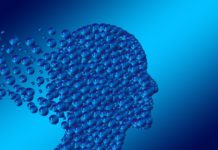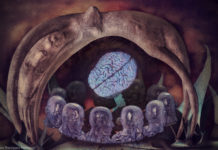Researchers Present Structural Competency Training Model for Psychiatrists
Researchers argue that a structural competency and social determinants of health approach must be made central to psychiatry training.
Psych Patients Who Resist Stigma Do Better
A new study in press in the Journal of Schizophrenia Research finds that patients who actively resist the negative stigma associated with mental health...
Stigma May Increase Distress in Individuals Who Hear Voices
Review finds that stigma around voice hearing is connected to isolation, secrecy, and poorer functioning.
Why is the Field of Psychotherapy Still Fractured into Different Approaches?
Psychotherapy is dominated by contradicting schools of thought, exhibits a gap between research and practice, and repackages old ideas rather than finding clinical consensus.
REFOCUS Psychosis Recovery Intervention Ready for Trials
A new pro-recovery manualized intervention – called the REFOCUS intervention – has been developed and will now be evaluated in a multisite randomized control trials. The strengths-based intervention, which focuses on promoting relationships, is outlined in the latest issue of the British Journal of Psychiatry.
Study Highlights Importance of Social Interactions in Psychosis Recovery
Study finds frequency of social interactions predicts long-term remission in first-episode psychosis.
Case Study of Liberation Approach to International Mental Health Care
Study in Brazil demonstrates how the exploration of contextual determinants of distress in mental health care can inform therapeutic change.
Searching for a Rose Garden: Challenging Psychiatry, Fostering Mad Studies
Searching for a Rose Garden:
Challenging Psychiatry, Fostering Mad Studies is a timely and unique collection of essays that should be of interest to anyone with personal experience with, or research interests in, mental difference, psychiatrization and its resistance.
Filling the Crack in the Liberty Bell
Instead of an echo-chamber conference, in which treatment “experts” present to other treatment providers, and those with lived experience gather in their own rooms, the ISPS-US conference allowed for the clash of diverse opinions, which could sometimes amalgamate into something greater than the sum of its parts.
Researchers Develop New Model for Understanding Depression
Acknowledging that current depression treatments are failing many people, researchers from Michigan State and MIT have developed a new model for understanding how multiple psychological, biological, social and environmental factors contribute to depression.
Lack of Face-to-Face Contact Doubles Depression Risk for Older Adults
New research suggests that more frequent in-person contact lessens the risk of depression in older adults. The study, published in this month’s issue of the Journal of the American Geriatric Society, found that in Americans over fifty the more face-to-face contact they had with children, family and friends, the less likely they were to develop depressive symptoms.
Danish Study Finds Better 10-year Outcomes in Patients Off Antipsychotics
Study finds that 74% of patients with a psychotic disorder off antipsychotics at end of 10 years are in remission.
Can a Conceptual Competence Curriculum Bring Humility to Psychiatry?
Training for conceptual competence in psychiatry provides a new way forward to address theoretical and philosophical issues in mental health research and practice.
Therapy Recommended As First Line Treatment for Depression
Following an extensive systematic review of treatments for major depression, the American College of Physicians (ACP) issued a recommendation to clinicians suggesting cognitive behavioral therapy (CBT) as a first-line treatment for major depressive disorder along with second-generation antidepressants. The results of the review revealed that CBT and antidepressants have similar levels of effectiveness but that antidepressants present serious side-effects and higher relapse rates.
Family Oriented, Home-Based Treatment Best for Youth with Symptoms of Psychosis
A pathbreaking new study out of Finland suggests that early intervention programs for youth experiencing psychotic-like symptoms may see the greatest improvement when treatment works within the home rather than in a hospital setting. The research, to be published in next month’s issue of Psychiatry Research, found greater improvement in functioning, depression, and hopelessness among teens in a new need-adapted Family and Community oriented Integrative Treatment Model (FCTM) program.
Researchers Question the Utility of an ADHD Diagnosis
A new article examines the usefulness of the ADHD diagnosis and suggests alternatives
The Revolution in Psychotherapy
Since the time of Freud, the field of psychotherapy has assumed that modalities and techniques were the instruments of change in psychotherapy. But the evidence is mounting that modalities and techniques have relatively little to do with effectiveness; evidence shows that it is the human elements of psychotherapy that are the most potent agents of healing
A Conversation about Having Conversations about Psychiatry
In spite of constantly increasing opportunities to tell different stories to the canonical story of bio-psychiatry, it can be risky for academics to voice a different perspective than the mainstream model of mental illness. In this conversation, a communication professor and a psychology professor discuss their challenges and personal experiences with going against the grain, such as what it means to be labeled “anti-psychiatry” by colleagues and responding to students upset to learn their medications may not be all they thought they were.
Screen Time Linked to Increased Depressive Symptoms Among Teens
New study examines how increased screen time and social media may be contributing to depressive symptoms and suicide risk in teens
Series on Anti-Psychiatry and Critical Theory for World Mental Health Day
To coincide with World Mental Health Day on October 10th, 2015, Verso Books, the largest independent and radical publishing house released a series of blogs on mental health and critical and antipsychiatry. The posts include pieces on R.D. Laing, colonialism, women’s oppression, delusions and art, “The Happiness Industry,” and social and institutional oppression.
How Feedback Can Improve Psychotherapy Treatment
Researcher examines the impact of client feedback and progress assessment on improvement in outcomes.
Prominent Researcher and Psychotherapist Questions “Evidence-Based Therapy”
Dr. Johnathan Shedler recently published a paper critiquing how the term “evidence-based” is being used in the field of psychotherapy.
Speaking, Not Texting, May Prevent Dehumanization in Disagreements
Researchers found participants were less likely to dehumanize those with whom they disagreed when they heard their voices.
Researchers Explore Sexuality and Gender in the Context of Psychosis
Nev Jones and a team of researchers examine how sex, sexuality, and gender-related content are underexplored in contemporary research on psychosis.
German Psychologists Declare “the Drugs Don’t Work”
Jürgen Margraf and Silvia Schneider, both well-known psychologists at the University of Bochum in Germany, claim that psychotropic drugs are no solution to mental...

